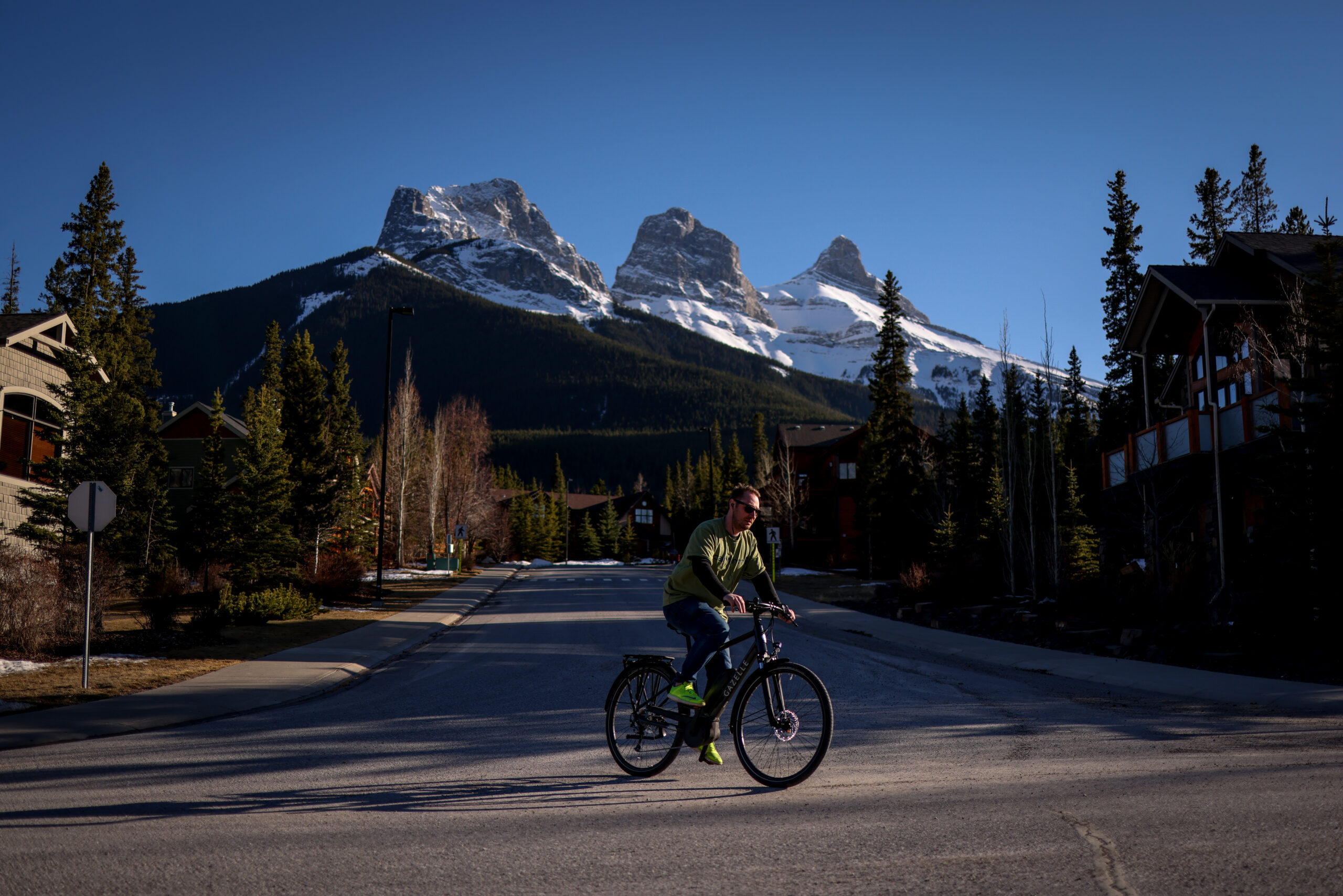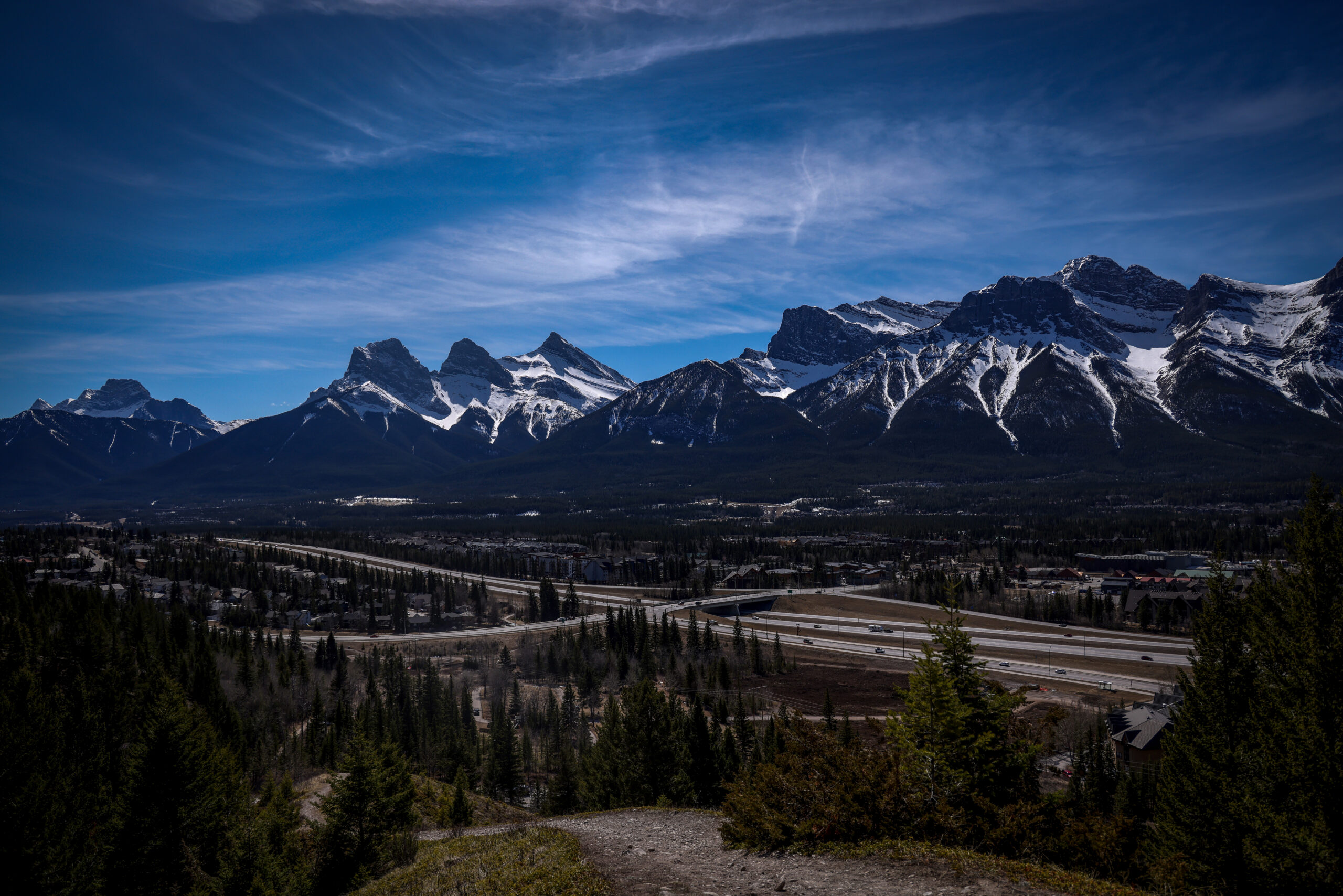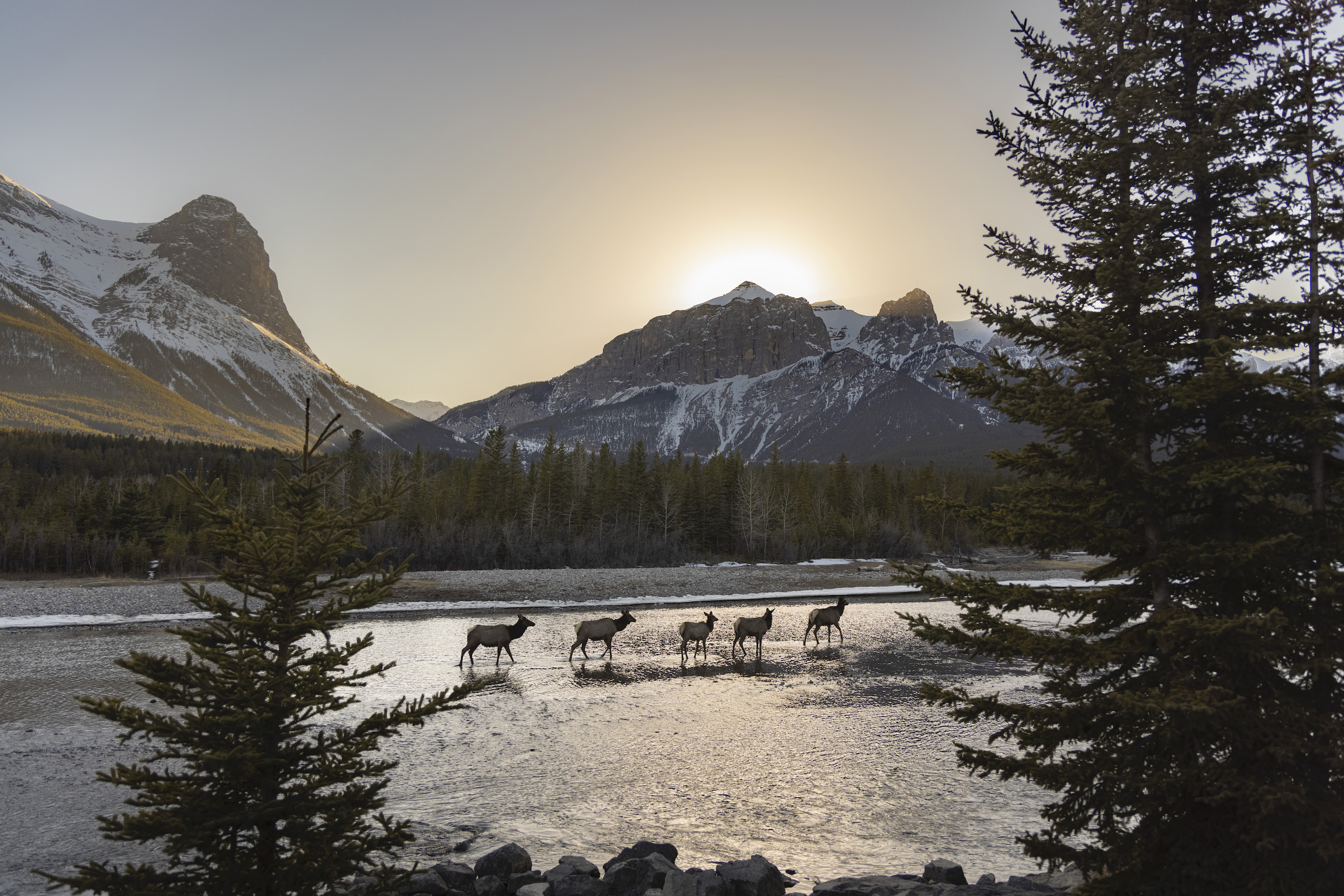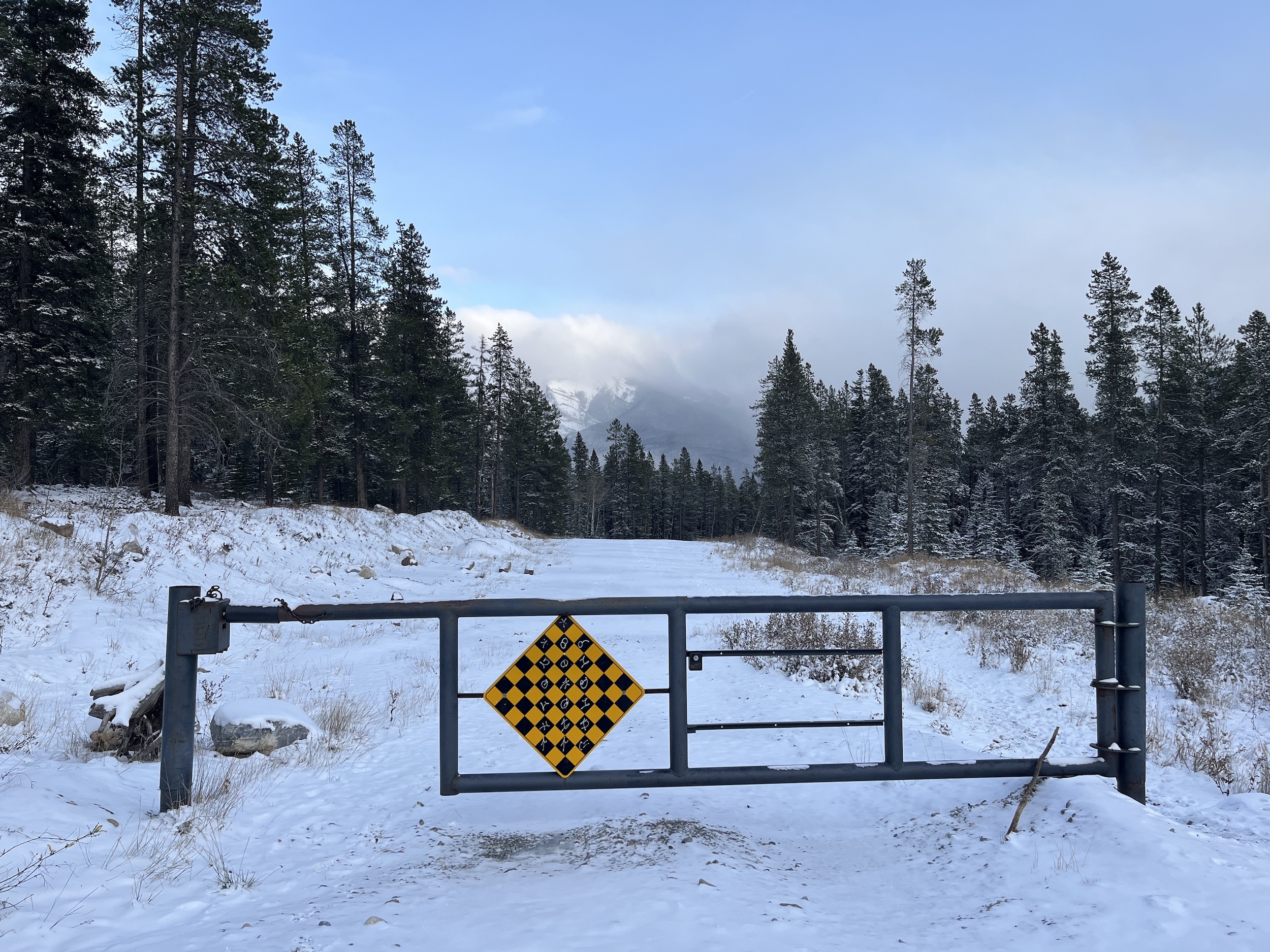
Ontario’s public service heads back to the office, meaning more traffic and emissions
For 15 years and counting, my commute from Mississauga to Toronto has been mired by...
One of the owners of a controversial development that will swell the Alberta mountain town of Canmore has published an open letter calling protestors “immoral” and warning residents of the steep costs of dissent.
After laying out some of the tumultuous history of the sprawling Three Sisters Mountain Village project — a 31-year battle that culminated in a court-ordered approval by town council on Oct. 24 — and condemning protestors who showed up at his co-owner’s Calgary home, Blair Richardson issues his warning.
“There is another significant matter of which the residents of Canmore should be aware,” reads the letter which appeared on page two of the local Rocky Mountain Outlook newspaper on Thursday.
“Three Sisters will continue to pursue a civil court case against the Town of Canmore, which when issued sought $161 million in damages for the decades of obstruction of the project, now determined to have been unlawful.”

Richardson says “when the matter is resolved,” it could “severely impact” the financial stability of the town and the taxes residents pay.
The letter comes fast on the heels of an emotional town council meeting to approve two area structure plans and changes to the town’s municipal development plan in order to pave the way for the Three Sisters Mountain Village project.
That project, which will consume the majority of developable land in the mountain town on the edge of Banff National Park and could nearly double its population when fully built, was first pitched in 1991 and approved by the province’s Natural Resources Conservation Board in 1992.
Since then, the project has floundered and the property changed hands. The area plans have also changed since council approved previous iterations in 2004.
Canmore council voted against the latest plan in 2021 and argued the decades-old approval related to what was essentially a completely different project. That decision was overturned by the Alberta Land and Property Rights Tribunal in 2022, which led Canmore to petition the Court of Appeal.

In November of last year, that court rejected Canmore’s bid to overturn the tribunal decision and, because the town had already pledged not to escalate its battle to the Supreme Court, closed the final legal avenue available to the town.
That led to the tearful approval on Oct. 24, where fierce opponents of the plan were forced to approve it and three councillors had to excuse themselves because they are named in the $161-million lawsuit cited by Richardson.
Two days prior to that vote in council, approximately 20 protesters organized by Bow Valley Engage — a group of citizens opposed to the development — showed up at the sprawling hilltop home of Don Taylor, a well known Calgary businessman and co-owner of the Three Sisters Mountain Village Properties. The organization is fiercely opposed to the development.
“The Calgary police had to attend to ensure the safety of the Taylors,” reads the letter from Richardson.
“It’s essential to ask who these people are and whether they respect the principles of the law and unbiased court decisions. Given the immense contributions of the Taylor family to Alberta and Canada, such treatment appears immoral, unjust and unethical.”
Karsten Heuer, president of Bow Valley Engage, says they were well within their rights to protest and to shine a light on the owners of the project.
“We’ve been pushed to the extent that we feel it’s time to actually air this thing out for what it is, and who the people behind it are,” he said.
There are bronze statues of grizzly bears and elk on the Taylor lawn, he said.
“Those are the very things they’re putting at risk,” a concern supported by modelling of the impacts of increased population on wildlife connectivity and habitat degradation in the region.
Canmore Mayor Sean Krausert says the letter is another example of the high emotions around this project.
“Just as I found the protesting outside of Mr. Taylor’s house to be in poor taste, I find this letter to be in poor taste,” he said.
Krausert said he thinks the letter is the sole view of Richardson and does not represent Three Sisters Mountain Village Properties.
Richardson, in his letter, says the project has struggled over decades and under different ownership as the town either slowed or blocked approvals for the development, despite provincial approvals that take precedence over municipal decisions.
Now that the project has been approved at a high level, his company must work with the town council as it seeks approval on the details, while the council and the town face a $161-million lawsuit that could still add more names.
Alberta has no legislation against what are known as strategic lawsuits against public participation — or SLAPP suits — which are filed in order to silence critics exercising their freedom of political expression. In contrast, British Columbia passed anti-SLAPP legislation in 2019, with the express intention of enabling judges to toss out lawsuits targeting people who speak out on matters of public interest.
The developer suit does bear the hallmarks of one, even if it can’t be defeated based on that argument, Shaun Fluker, an associate professor of law at the University of Calgary who works with the university’s public interest law clinic, says.
“I think it’s noteworthy that the individuals named in the claim abstained from the council deliberations,” he said.
“So right there you’re seeing, seemingly, a connection between the litigation and their ability to perform their public responsibilities, it’s highly problematic.”
Fluker previously intervened for the Yellowstone to Yukon Initiative on the Three Sisters development when it was before the property rights tribunal.

Speaking after the vote on Oct. 24, Chris Ollenberger, director of strategy and development for Three Sisters Mountain Village Properties Ltd., said the company was eager to move forward with the town, but wouldn’t commit to ending the suit.
“It’s only been about 10 minutes since we’ve seen the last actions that needed to be accomplished and according to the court order, so next steps will unfold,” he said.
“As the town’s own lawyer said here at the beginning today, there are some actions that will fall by the wayside and, and as time goes on, we’ll see what the next steps are and some other pieces.” The Narwhal did not receive responses from either Richardson or Ollenberger with Three Sisters Mountain Properties prior to publication.
That view was echoed by Mayor Krausert the day after Richardson’s letter was published.
“There is no doubt that the lawsuit that names the town and the previous council has been gutted by the approval of the [area structure plans],” he said.
“Therefore, the vast majority of the claims that are referenced in this letter have gone away.”
Krausert said he believes the town will be “defending the lawsuit vigorously” and will be particularly focused on removing the individuals named in the lawsuit.
Heuer said it’s frustrating that the developer, through the courts, forced the council to vote in favour of a project the majority of residents oppose.

“Then here is the actual power behind all that basically saying we really care about your community. And by the way, we’re still suing you.”
It is, he said, in keeping with the actions of the developer throughout the long saga.
“It puts the fear in people of legal repercussions. They’re the tactics of the bully and bullies don’t change overnight,” Heuer said.
Updated on Nov. 2, 2023, at 3:10 p.m. MT: This story was updated to add comments from Canmore Mayor Sean Krausert.
Enbridge Gas will face Waterloo Region in a hearing before the Ontario Energy Board to renew an agreement that would allow the company to continue...
Continue reading
For 15 years and counting, my commute from Mississauga to Toronto has been mired by...

For our last weekly newsletter of the year, we wanted to share some highlights from...

The fossil fuel giant says its agreement to build pipelines without paying for the right...